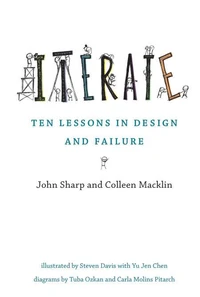Reclaiming fun as a meaningful concept for understanding games and play."Fun" is somewhat ambiguous. If something is fun, is it pleasant? Entertaining? Silly? A way to trick students into learning? Fun also has baggage-it seems inconsequential, embarrassing, child's play. In Fun, Taste, & Games, John Sharp and David Thomas reclaim fun as a productive and meaningful tool for understanding and appreciating play and games.
They position fun at the heart of the aesthetics of games. As beauty was to art, they argue, fun is to play and games-the aesthetic goal that we measure our experiences and interpretations against. Sharp and Thomas use this fun-centered aesthetic framework to explore a range of games and game issues-from workplace bingo to Meow Wolf, from basketball to Myst, from the consumer marketplace to Marcel Duchamp.
They begin by outlining three elements for understanding the drive, creation, and experience of fun: set-outsideness, ludic forms, and ambiguity. Moving from theory to practice and back again, they explore the complicated relationships among the titular fun, taste, and games. They consider, among other things, the dismissal of fun by game journalists and designers; the seminal but underinfluential game Myst, and how tastes change over time; the shattering of the gamer community in Gamergate; and an aesthetics of play that goes beyond games.
Reclaiming fun as a meaningful concept for understanding games and play."Fun" is somewhat ambiguous. If something is fun, is it pleasant? Entertaining? Silly? A way to trick students into learning? Fun also has baggage-it seems inconsequential, embarrassing, child's play. In Fun, Taste, & Games, John Sharp and David Thomas reclaim fun as a productive and meaningful tool for understanding and appreciating play and games.
They position fun at the heart of the aesthetics of games. As beauty was to art, they argue, fun is to play and games-the aesthetic goal that we measure our experiences and interpretations against. Sharp and Thomas use this fun-centered aesthetic framework to explore a range of games and game issues-from workplace bingo to Meow Wolf, from basketball to Myst, from the consumer marketplace to Marcel Duchamp.
They begin by outlining three elements for understanding the drive, creation, and experience of fun: set-outsideness, ludic forms, and ambiguity. Moving from theory to practice and back again, they explore the complicated relationships among the titular fun, taste, and games. They consider, among other things, the dismissal of fun by game journalists and designers; the seminal but underinfluential game Myst, and how tastes change over time; the shattering of the gamer community in Gamergate; and an aesthetics of play that goes beyond games.

 , qui est-ce ?
, qui est-ce ?